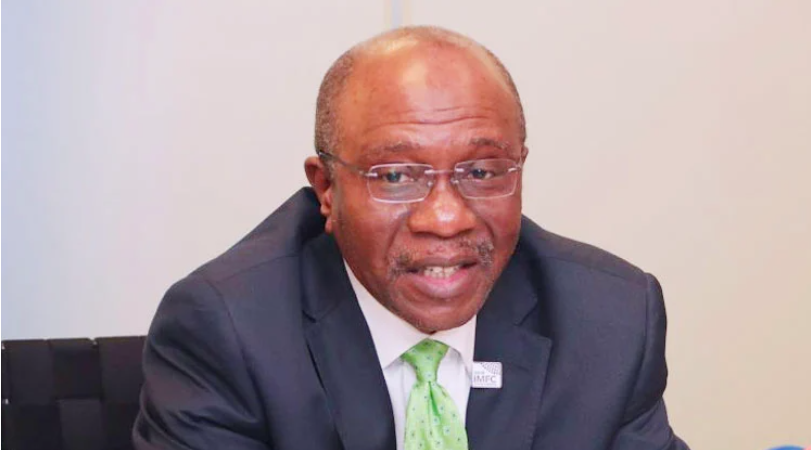What it takes to sack a Governor of the Central Bank of Nigeria can be accessed below.
Newsonline understands that the rumours about the Central Bank Governor, Godwin Emefiele, being fired surfaced on social media yesterday. This story was quickly debunked by Osita Nwanisiobi, the Central Bank’s head of corporate communications.
BREAKING: Naira Falls To N609/$1 At Black Market As Forex Liquidity Remains Low
Nonetheless, the last time a CBN Governor was sacked was when Emefiele’s predecessor, Sanusi Lamido Sanusi was suspended by President Goodluck Jonathan.
Hence, Newsonline took a cursory look at the Central Bank of Nigeria ACT, 2007, to understand the requirements for the CBN Governor’s termination.
What the CBN Act says
The Governor of the Central Bank’s disqualification and termination of appointment was clarified in Section 11 of the Central Bank of Nigeria Act, 2007.
- If he is serving as a lawmaker or a director of a bank, the Section states that the Governor, Deputy Governor, or Director of the CBN should continue in authority. But the Act doesn’t specify if the Governor can remain in service while contesting for a legislative office.
- The ACT said, “A person shall not remain a Governor, Deputy Governor or Director of the Bank if he is a member of any Federal or State legislative house; or if he is a Director, officer or employee of any bank licensed under the Banks and Other Financial Institutions Act.”
- The CBN Act further states that criminal offences and mental health conditions can result in the CBN Governor’s termination of appointment.
- “The Governor, Deputy Governor or Director shall cease to hold office in the Bank if he becomes of unsound mind or, owing to ill health, is incapable of carrying out his duties: is convicted of any criminal offence by a court of competent jurisdiction except for traffic offences or contempt proceedings arising in connection with the execution or intended execution of any power or duty conferred under this Act or the Banks and Other Financial Institutions Act.” CBN act stated.
- The Governor can also be removed if he “is guilty of a serious misconduct in relation to his duties under this Act; disqualified or suspended from practising his profession in Nigeria by order of a competent authority made in respect of him personally; Becomes bankrupt.”
- The CBN Act also gives the Presidency power to terminate the appointment of the CBN but it is dependent on lawmakers’ backing.
- “The CBN Governor can be removed by the President, Provided that the removal of the Governor shall be supported by two-thirds majority of the Senate praying that he be so removed.”
What you should know
- Since declaring his intention to run for President of the Federal Republic of Nigeria, the Governor of the Central Bank of Nigeria has come under fire.
- Emefiele had petitioned the court to prevent the Central Bank of Nigeria’s Board of Directors, the Attorney General of the Federation, and the Independent National Electoral Commission (INEC) from preventing him from running for president.
- Following an ex parte motion filed by one Nkwo Augustine Eddiego against the Board of the Central Bank of Nigeria and INEC seeking an order of restraint against the defendants, the judge issued the order.
- Sources told Nairametrics that the Presidency was dissatisfied with his actions, chastising him for dragging INEC to court on a non-existent issue.
- Mr. Emefiele has now dropped his lawsuit against INEC and the Attorney General, which had barred him from running for President.
- On Tuesday 24th May 2022, Nigeria’s Central Bank suddenly hiked its benchmark interest rate for the first time in nearly six years to 13% from 11.5% (a 150bps hike).
- The Central Bank of Nigeria agreed to leave interest rates for its development finance actives or intervention funds at 5% per annum until March 2023.
- The 5% annual interest rate paid by the loan recipients is equivalent to a subsidy, as the loans initially had a 9% annual interest rate. Even at 9%, the rate is still a bargain when compared to commercial bank rates of up to 20% a year.
